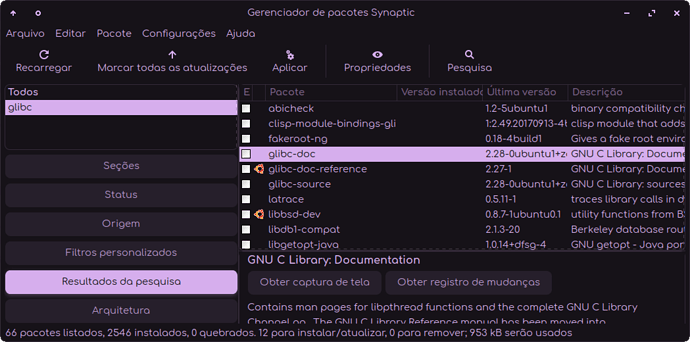Anything that calls on glibc will start throwing errors. In restarting, you may have killed the process for glibc, but as soon as any process needing glibc is started, glibc will also start.
You MAY try a total removal of glibc while the process is not running.
You can use synaptic package manager. If you do not have synaptic, you can install it with
sudo apt install synaptic
Then run synaptic and hit the Search button on the toolbar. Enter in
glibc
Then find any glibc packages that are checked, right click them and select "Complete Removal".
DO NOT REMOVE libnss-systemd AND libnss-mdns or any other libnss files.
If glibc successfully is removed, then you may be in the clear as far as that build creating errors. Next you will want to use the locate command in terminal and search for any residual glibc configuration files. libc-6 and libc-bin - instead of removing, just rename them to -old. This way if something goes wrong, you can restore them by renaming to the original file name, removing the -old from the name.
Once complete, if you like, you can then make backups and attempt re-installation of glibc. The highest supported package for glibc is 2.27 for Zorin OS 15.3. So, installing glibc 2.29 may throw other errors in any case. Which, I suspect, is the reason you ended up installing from source; you wanted a higher version than what was currently available.
Otherwise, glibc 2.27 from Bionic should be the way to go.
https://ubuntu.pkgs.org/18.04/ubuntu-main-amd64/glibc-doc_2.27-3ubuntu1_all.deb.html
If this is not a high enough version- I would suggest anticipating the upcoming release of Zorin 16 which can support a higher version, perhaps in April.
In installing: 99% of the time, it is not dangerous to install software. But when it comes to building from source or building a package known to conflict or in need of directed attention from source; it can get dangerous. If you are installing from terminal with apt, or .deb packages or from Synaptic- you should be safe the vast majority of time. When building from source, please use this forum as a resource, but stay wary of answers and double-check everything against a variety of sources. (Don't believe what you read on the internet). Oftentimes, building from source means accessing the developers page which is usually populated with much documentation on the process and pitfalls.
